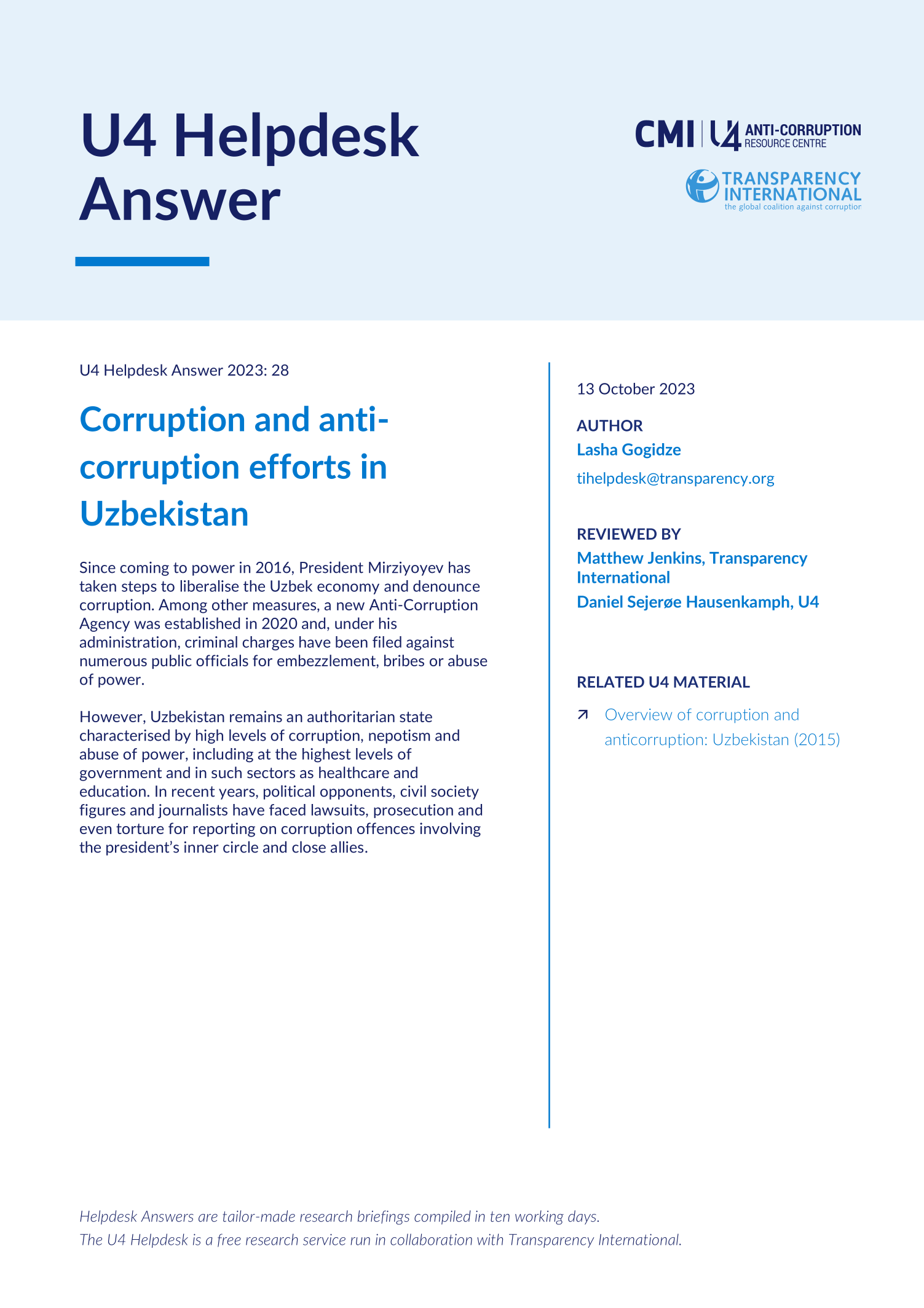Main points
- Under the presidency of Shavkat Mirziyoyev, Uzbekistan has embarked on a reformist path, seeking to transform its political and economic governance model from a Soviet-style top-down system towards an open-market economy.
- Yet, despite some progress in political and economic reforms, Uzbekistan remains an authoritarian state characterised by high levels of corruption among senior officials.
- According to public opinion data gathered a by governmental research centre and the assessment of the Uzbek parliament and state anti-corruption agency, healthcare and education are among the most corrupt sectors in the country.
- Important institutions, such as the parliament, judiciary, prosecution and law enforcement are subject to undue influence by the president and other officials in the executive branch. There is limited due process within the judicial system, and law enforcement authorities arrest civic activists, journalists or political opponents on flimsy pretexts and dubious charges.
- Uzbekistan’s civic space is considered closed with human rights defenders, investigative journalists and bloggers being prosecuted and sometimes tortured for publishing critical articles exposing entrenched corruption in the top echelons of the government.

